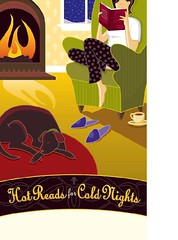Today I learned that another school has eliminated their school media specialist. The budget is stretched to the max, and something has to go — so it’s the professional teacher librarian media specialist who teaches kids how to learn and where to find the information for successful learning. The teacher librarian is part of the curriculum teaching team that teaches kids the literacy skills to help them succeed in a world where being a lifelong learner is critical. Just as the student uses the school library to complete the assignments from the classroom, the graduated student will use information seeking behaviors learned from the teacher librarian to complete life’s assignments.
I’m heartsick to think that the successful information literacy program this teacher has built has no value to the board who makes the decisions what to pay for and what to ax. Minnesota has no enforceable standards for students’ access to instruction by a certified teacher librarian. Indeed, the opinion of a number of schools is that they will keep the library open with a (much cheaper) non-teacher to carry out technical tasks. I wonder, how do they expect their students to acquire the higher level literacy skills of research, critical thinking, and problem solving without the curricular involvement of a skilled and certified teacher librarian.
A long time ago, when my mother began her teaching career in a one-room school, her classroom library was a collection of several book shelves, each with books for a different reading and learning level. When I attended a 2-room rural school in Wisconsin, my classroom library was a low shelf of books under the window. That world of information was somewhat finite and manageable by the classroom teacher.
As the world of information increased through the latter part of the 20th century and exploded through the technology of the 21st century, the need for instruction by a skilled information professional has become critical. Children must learn to learn – and keep learning. While we cannot predict what they will need to know as adults, we can equip them to be lifelong learners using the network of the communities’ libraries as their learning lab. Children who have not learned the information literacy skills critical to continuous learning from a teacher librarian will enter the adult work world with a fatal learning disability and handicap.


